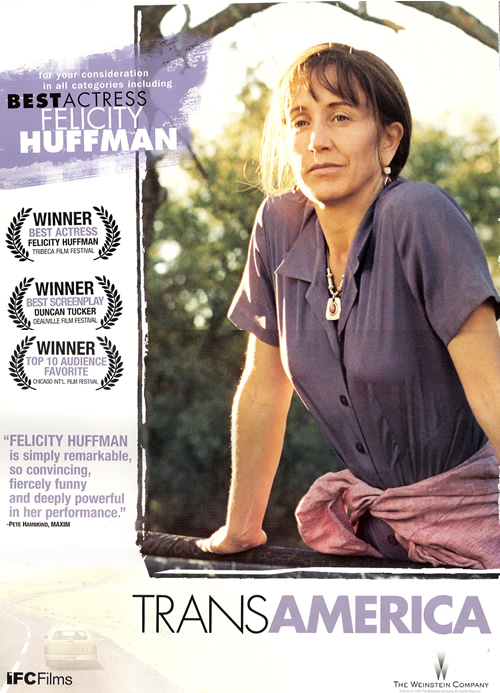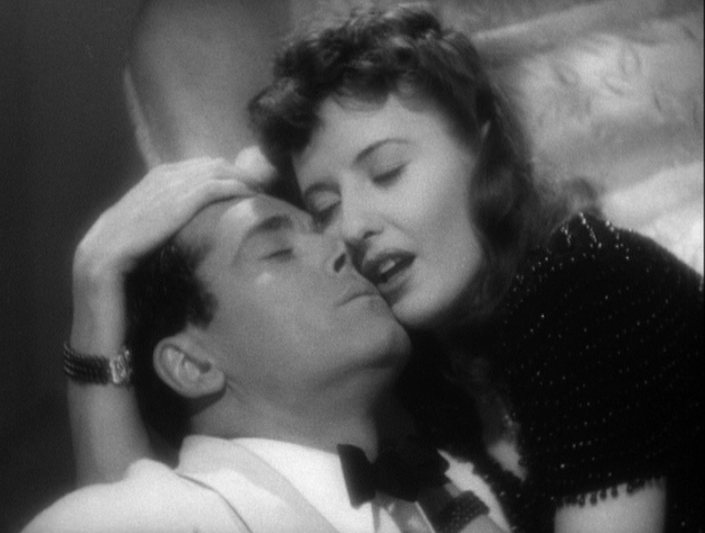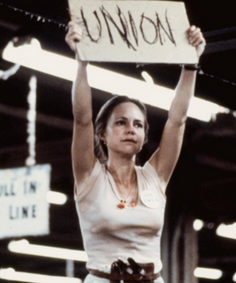The initial Oscar charts from this already rolling film year are nearing completion. Now it's time for our favorite category... BEST ACTRESS
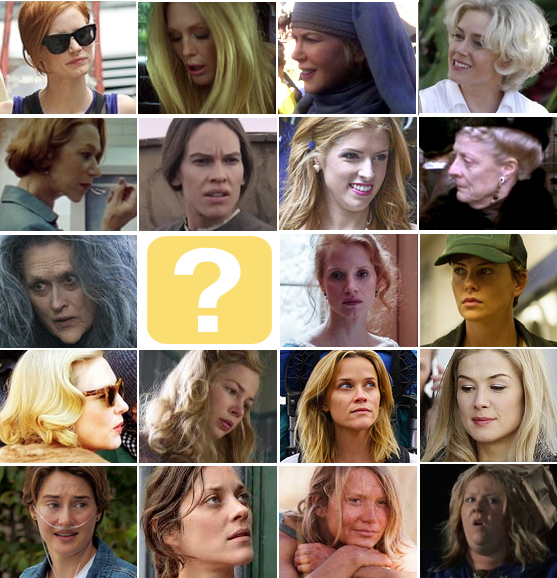 from top left: jessisa chastain, juli, nicole, AMY ADAMS, Dame Mirren, The Swank, Anna Kendrick, Dame Maggie, Meryl, Jess again, Charlize, CATE, MICHELLE, REESE, ROSAMUND, Shailene, Marion, Mia, Melissa
from top left: jessisa chastain, juli, nicole, AMY ADAMS, Dame Mirren, The Swank, Anna Kendrick, Dame Maggie, Meryl, Jess again, Charlize, CATE, MICHELLE, REESE, ROSAMUND, Shailene, Marion, Mia, Melissa
If this doesn't get you talking, nothing will...
Coming out of Cannes, things don't look great for Marion Cotillard (who can't seem to win Cannes best actress or a second Oscar nomination despite numerous buzzy attempts at both) or Hilary Swank (The Homesman) but it's worth remembering that Oscar voters are a very different sort and voting in a very different climate than Cannes critics and jury members. Cannes is never the be all and end all for movies with big stars... or movies that fall closer to mainstream prestige than auteur prestige, if you know what I mean.
That said, the only thing Grace of Monaco might do for Nicole Kidman's Oscar chances is help her knock people's socks off unexpectedly if she's great in Queen of the Desert. Not that we know what kind of release that Werner Herzog biopic might get. And not that we should necessarily hope that Oscar keys in to Herzog since they've had trouble there before.
As for our darling Julianne Moore, a Cannes win is a big deal for any actress but it is unfortunately free of Oscar boosts beyond bragging rights.
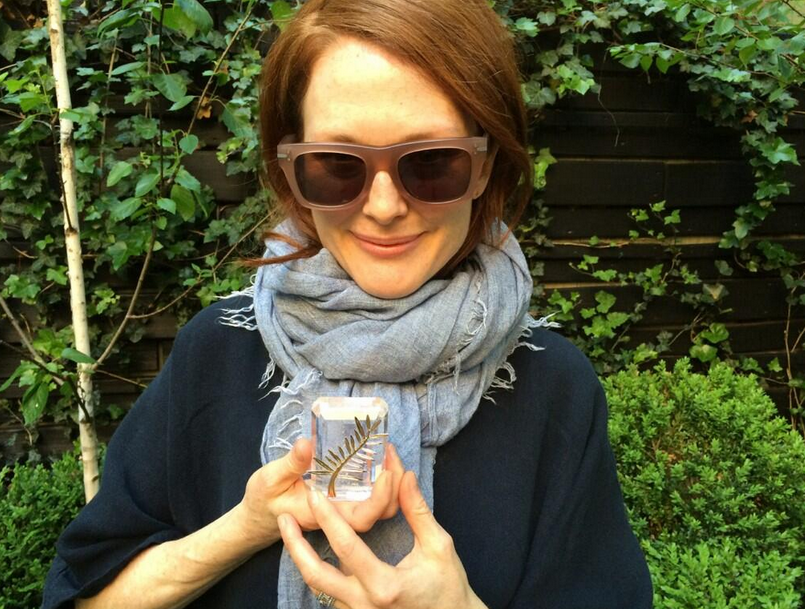 Julianne with her prize
Julianne with her prize
What it does do -- which is not unimportant -- is open people's ideas to the fact that she's impressive in it and makes them more likely to engage and consider whatever it is she's doing in it. That can't hurt given that it's an outre role and the performance is considered excessively mannered by some. Even though the film and the role aren't exactly Oscar bait, anything is possible and after a 12 year absence from Oscar shortlists, it'd be wonderful to have her back and might require a shock to the system like this to accomplish.
Stay tuned.
my first wave predictions...
 Tuesday, July 1, 2014 at 10:30AM
Tuesday, July 1, 2014 at 10:30AM 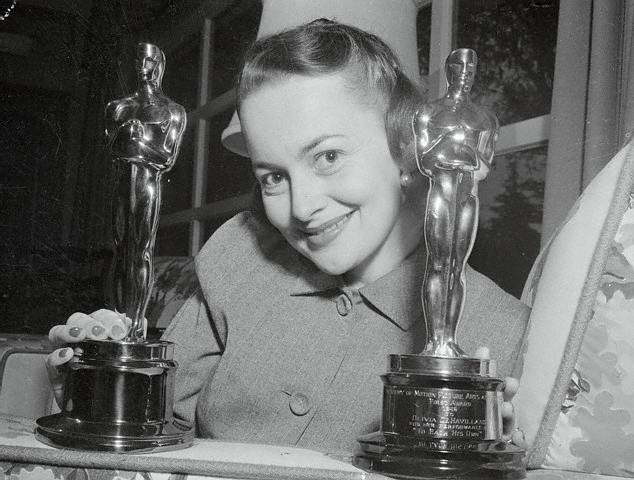
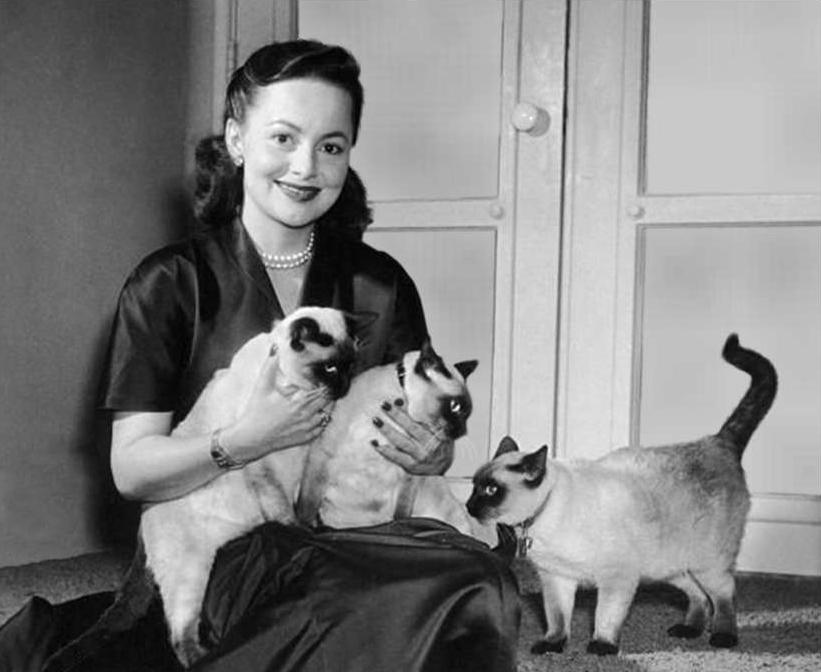
 Best Actress,
Best Actress,  Olivia de Havilland,
Olivia de Havilland,  cats
cats 


